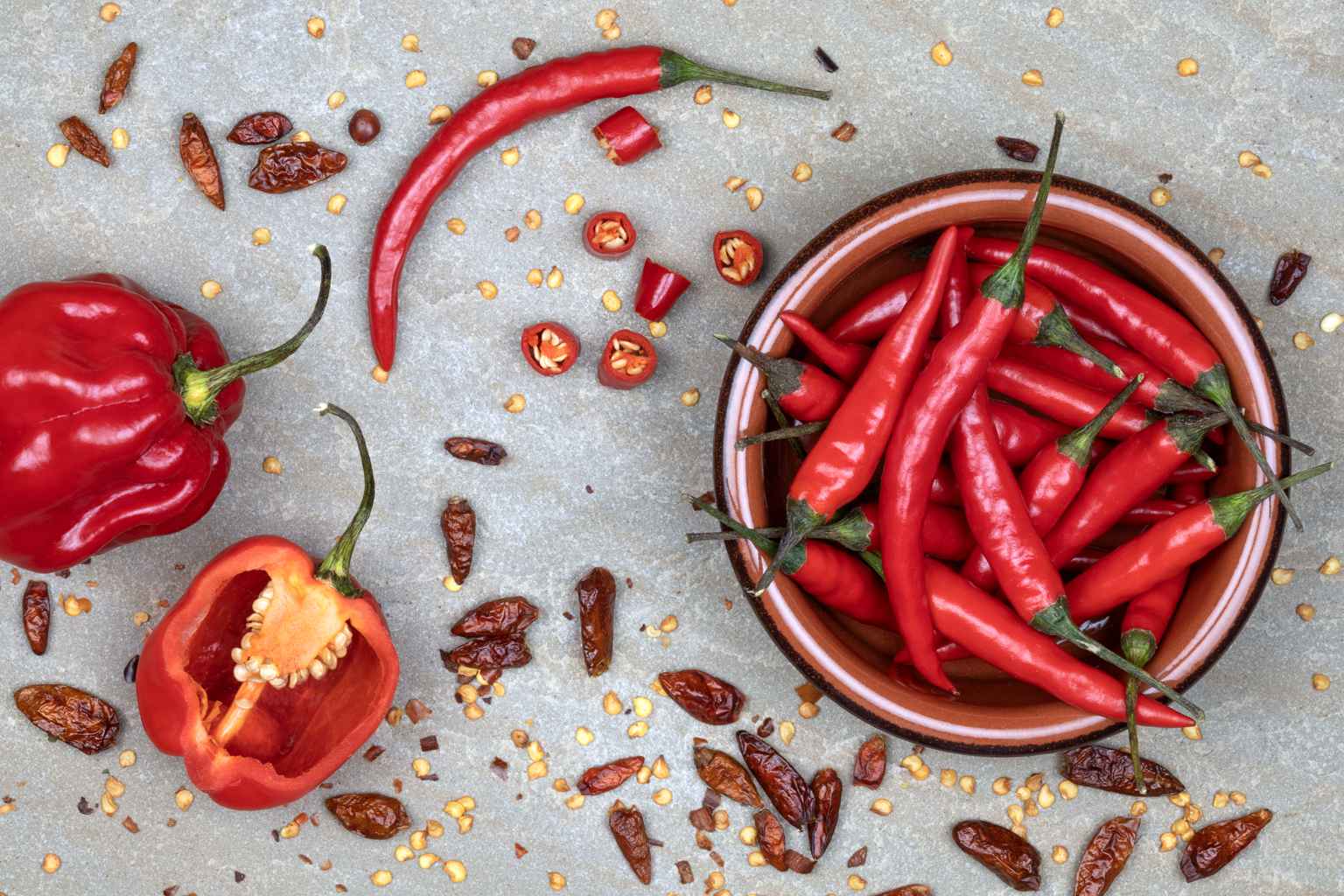Spicy peppers are more than just a flavor booster—they might actually help you shed fat and live a healthier, longer life. Have you ever wondered how long it takes for your tongue to get used to the heat of spicy food? The science behind these fiery foods is as fascinating as their taste.
Why spicy foods boost metabolism and promote weight loss
Spicy foods have gone from rare and exotic treats to a global phenomenon. A recent report by the food company Calbee revealed that many people worldwide are now seeking hotter and hotter meals. But beyond the thrill of heat, research suggests that spicy food can improve overall health when eaten regularly but in moderation.
According to Dr. Long Nguyen, assistant professor of medicine at Harvard University, the compound called capsaicin, which gives chili peppers their famous heat, activates heat-sensitive channels in nerve cells. This activation triggers adrenaline release, speeding up metabolism and promoting fat burning. This not only helps with weight control but also improves how your body manages blood sugar levels.
A curious side benefit is that spicy food encourages people to eat more slowly. John Hayes, a food scientist at the University of Pennsylvania, found that when people perceive food as spicy, they tend to chew more slowly, often leading to smaller portions and healthier digestion. I remember the first time I pushed myself to eat a super-spicy dish—it wasn’t just the heat but the way I ended up savoring every bite slowly, which surprisingly made me feel satisfied sooner.
Health benefits beyond weight loss: heart health, longevity, and gut support
It’s not just about burning calories. A large 2020 review linked diets rich in hot peppers to a decreased risk of obesity, heart disease, and diabetes. People who regularly consumed chili peppers showed a 25% lower chance of dying prematurely compared to those who rarely or never ate spicy food.
This might be due partly to the anti-inflammatory properties of capsaicin, which helps regulate immune cells and reduce chronic inflammation that leads to diseases like heart disease. Certain medications containing capsaicin are even used to treat nerve pain and arthritis.
Spicy peppers also pack antioxidants, especially the red, fully ripe ones, which are better than green peppers in preserving these protective compounds. These antioxidants contribute to heart health, and an Italian study found that people who preferred hot chili peppers enjoyed broader cardiovascular benefits than those who ate milder sweet peppers.
Another remarkable role of spicy food lies in nurturing your gut bacteria. Dr. Nguyen explains that spicy foods increase the diversity of your gut microbiome, which helps with digestion, strengthens the intestinal lining, and fights harmful germs. Emma Ling, clinical nutrition professor at the University of Georgia, notes that capsaicin’s effects on the gut also support metabolism, inflammation control, and blood sugar and cholesterol levels.
Eating fresh chili peppers is more beneficial than dried or ground forms. Studies from 2015 show that fresh chili consumers have lower rates of heart disease, diabetes, and even cancer, highlighting the importance of choosing fresh ingredients.
Getting used to the heat and enjoying spicy food safely
If you’re new to spicy foods, it’s best to start gradually with milder peppers. Nutrition expert Kiran Campbell recommends introducing small amounts of spicy food two to four times a week, especially for those interested in weight loss. Increasing capsaicin intake slowly can build your body’s tolerance, reducing the sensitivity of your tongue’s pain receptors in about a week.
But be careful not to overdo it. Dr. Nguyen warns that too much spicy food can trigger problems like acid reflux or irritable bowel syndrome flare-ups. He advises moderation or avoiding spicy foods altogether if you notice discomfort.
A useful tip from Mark Sanchez, who runs an online hot sauce business, is to remove the seeds from peppers—they don’t add flavor or nutrients and contain the highest concentration of capsaicin, making the heat more intense.
To ease the burning sensation, pairing spicy food with healthy fats works wonders. Dr. John Hayes likens whole milk to a “fire hose” for mouth heat, as it helps absorb capsaicin better than skim milk, likely due to the fat content. Cold milk’s protein and temperature also add relief.
Campbell suggests preserving sliced chili peppers in olive oil for a few days to mellow the heat while enjoying the flavors your body will gradually welcome.
Have you ever taken on a spicy food challenge or slowly built your heat tolerance? What strategies or dishes helped you enjoy the fiery flavors? Share your experiences or favorite spicy recipes below—I’d love to hear how you make the heat work for you!

My question, if I remove the seeds (all seeds) will this method prevent 🔥 when I poop?
A lover of all types of peppers.
Thank you , so much on the suggestions!
Grace